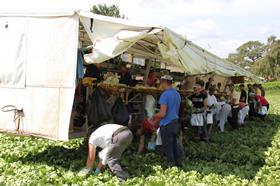
British Producer Organisations (POs) are set to lose around £33 million of EU funding after the UK voted to leave last week.
The UK fresh produce sector would “shrink” if the government does not replace this financial support, as investment would dry up and the industry could be 'swamped by lower-priced imports', trade bodies and POs have warned.
Jack Ward, chief executive of the British Growers Association, which manages several POs, said the case for PO funding now has to be made. 'The UK receives around €40m (£33m) from the EU Fruit and Vegetable Scheme, which is a relatively small amount compared to other areas of agri subsidy,' he said. 'This money is hugely important in ensuring we remain competitive. It offsets the cost of new technologies, products and varieties – it is a very effective way of spending money in the UK agricultural sector.'
Environment minister Liz Truss told FPJ that Defra officials 'will be working with a dedicated unit in government to look at a future package for farmers and the environment'. 'There clearly needs to be a system of agricultural support,' Truss maintained.
The funding to individual POs is split depending on size, and can be up to 4.1 per cent of turnover, Ward continued, adding that 'no one is in a position to find the level of funding that comes from the EU'. Some of the biggest names in the industry receive cash as a PO, including Berry Gardens, G's Growers, Fresh Growers, Asplins and Fruition.
'If it wasn’t replaced, the fresh produce industry in the UK would shrink, we would have to export jobs, export investment and import more produce. And that could be more expensive imports,' Ward said. 'It’s a really critical point, that there is no guarantee of funding.'
Chris Rose, of berry PO Asplins, said that prior to the referendum the official line was there is no Plan B, 'because it’s not going to happen'. 'Clearly now we need a Plan B. If no UK POs were getting funding, that would make the UK a level playing field. But our product would become much less competitive against imports. The best-case scenario is that the UK continues with the current fruit and veg scheme, the worst-case scenario is they drop it completely and we are swamped by lower-priced imports.'
Ward said when allocating funding it’s likely Defra will look to people with 'turnkey schemes that are already in place'. 'There are also opportunities to improve the PO scheme. After years of EU control, it’s guaranteed that we could run the PO scheme better ourselves,' he said.
EU protected food names
Fears that UK food products would have to give up their protected food name (PFN) status when the UK leaves the EU have been calmed by experts.
Currently six fruit and vegetables have European PDO or PGI status – Armagh Bramleys, Fenland celery, Jersey Royals, Comber earlies, Pembrokeshire earlies and Yorkshire forced rhubarb – and growers have expressed concern they may have to surrender the coveted logos.
However a PFN scheme source told FPJ it was 'business as usual', adding that non-EU countries were still able to be part of the scheme. Products such as Colombian coffee and Norwegian fish already have approvals.



